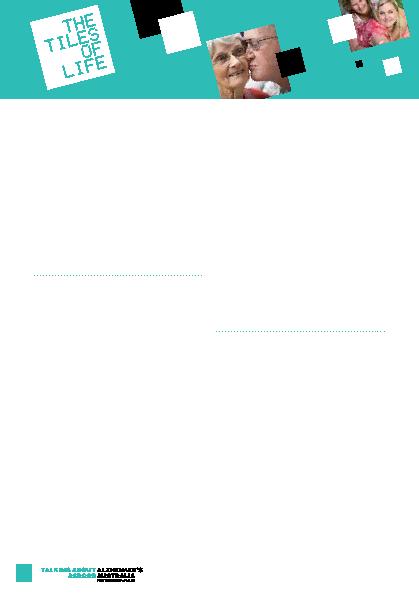
as cooking, respite for the carer and the ability
to observe the loved one while preserving
dignity.
and Enabling Environments were key to the
design along with customised elements for
specific needs and wishes. Both buildings
support a disability while also providing a
comfortable, beautiful, and most importantly,
a warm and welcoming home. We believe
a successful outcome was achieved in both
cases and will describe the process and some
of the features that went to make it so.
Southern Cross Care
Southern Cross Care (SA/NT) Inc. and
Alzheimer's Australia South Australia (AASA)
to provide an innovative model of respite
provision for Carers of persons with dementia.
It is funded through the National Respite for
Carers Program. Myrtle Cottage offers day
respite to carers utilizing a person centred
approach underpinned by person centred
values that provides flexible responsive
respite for the carer and an innovative day
respite program for the care recipient that
is individualised and within a restorative
framework that is engaging, stimulating and
encourages accomplishment.
The presentation will provide insight into a
client's journey through Myrtle Cottage.
disease - she is 53. Julieanne came to Myrtle
to progression of her illness. Her family still
worked and was having difficulty managing.
Julianne's family reported that she was
becoming increasingly lethargic, sleeping a
lot with challenging behaviours and agreed
to trial Myrtle Cottage. Initially when Julianne
visited Myrtle Cottage had verbal outbursts and
swore. Various strategies were implements
and you can follow Julianne's journey through
day respite.
and states she has a much better quality of
life. She no longer stays at home bored, it
contributing to the community and her life
has meaning. Her family report her memory
has improved and she no longer has verbal
outbursts or paranoid thoughts at home.
REmOtE austRalia.
and their families living in remote areas face
multiple barriers to culturally appropriate
dementia education and care. Services are
scarce and there is considerable language
and cultural barriers to using the limited
services available. Some of the strategies
implemented and/or proposed to meet